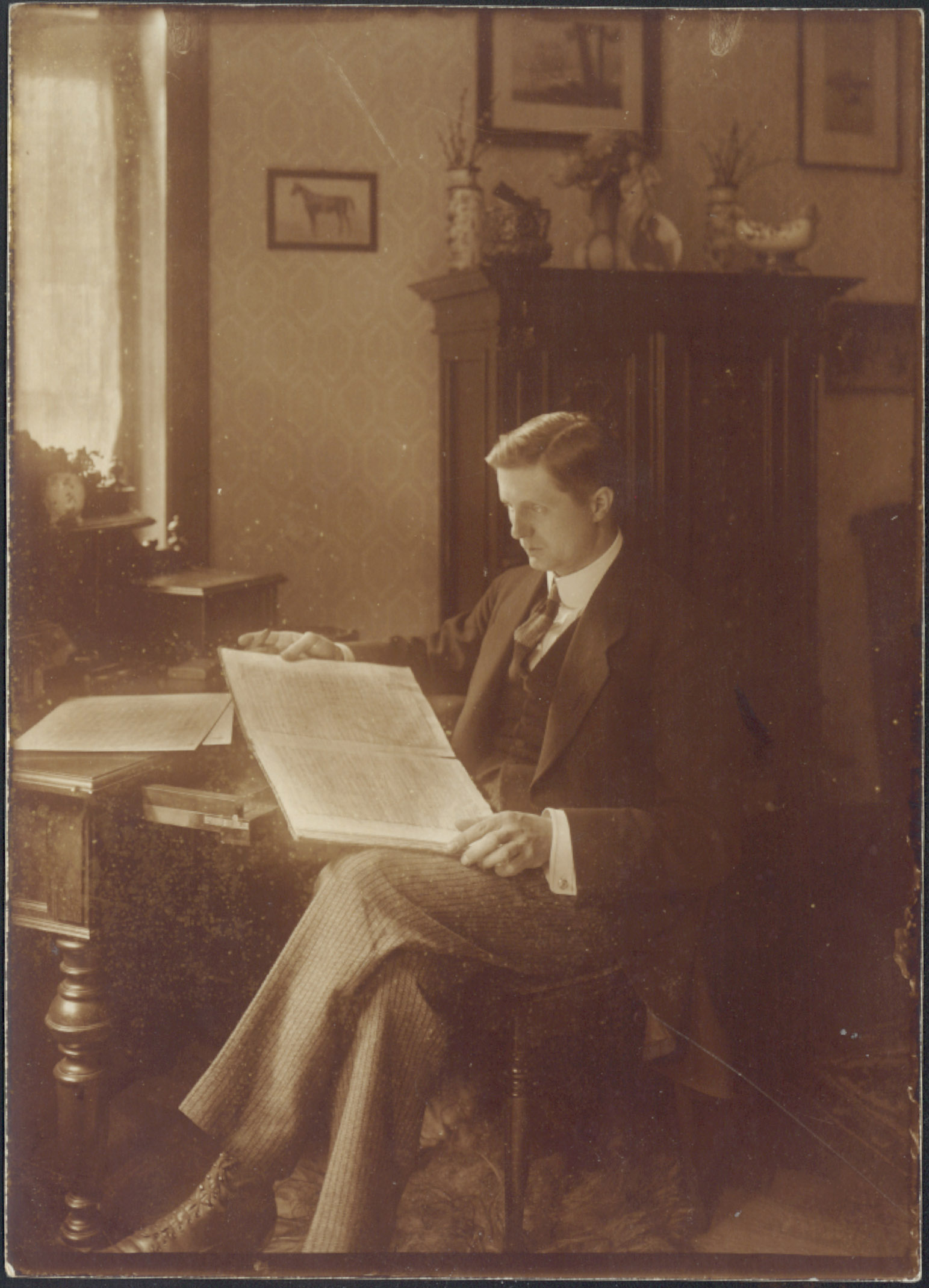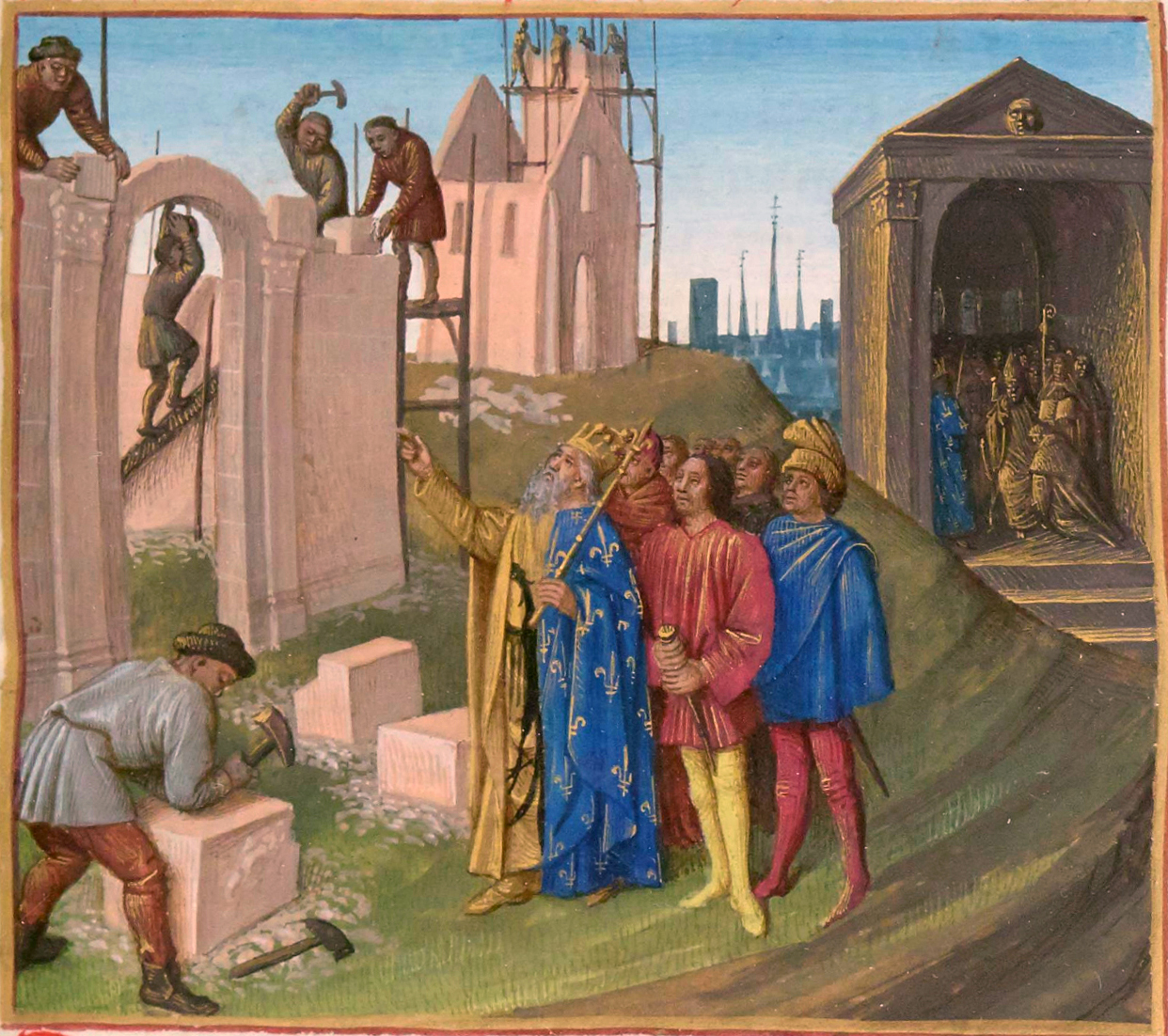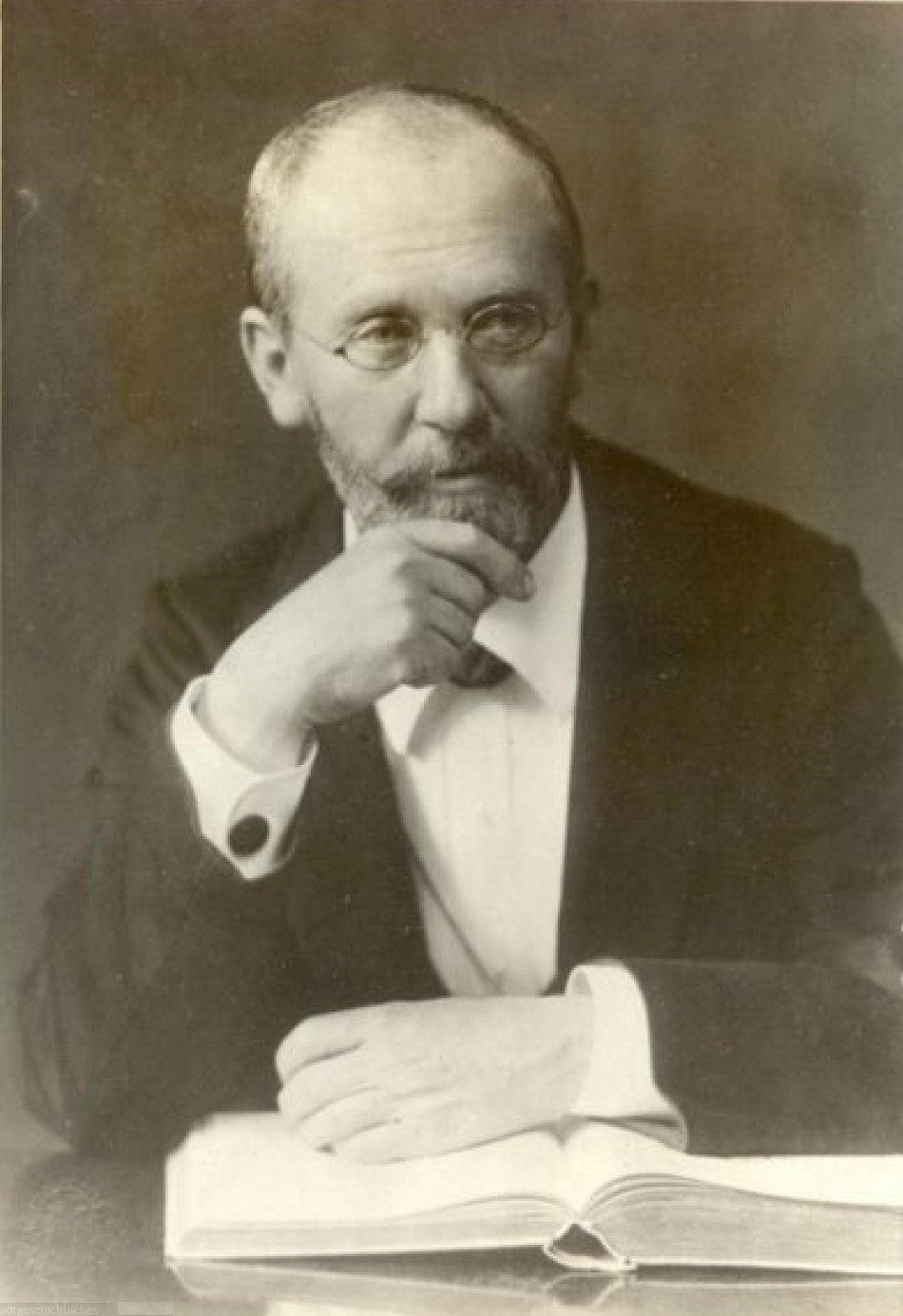|
Geistliche Gesänge, Op. 110
''Geistliche Gesänge'' (''Sacred songs''), Op. 110, are three motets by Max Reger. He composed them between 1909 and 1912: * No. 1: Mein Odem ist schwach (My spirit is weak), 1909 * No. 2: Ach Herr, strafe mich nicht! (O Lord, chasten me not), 1910 * No. 3: O Tod, wie bitter bist du (O death, how bitter are you), 1912 Mein Odem ist schwach Reger composed the first motet for an eight-part choir ( SSAATTBB) in Meiningen in July 1909. He dedicated it "Dem Thomanerchor und seinem Dirigenten Gustav Schreck" (To the Thomanerchor and its conductor Gustav Schreck). The text is taken from the Book of Job ( ). The score and parts were printed in September that year by Bote & Bock in Berlin, including a translation to English by Mrs. Bertram Shapleigh. The motet was first performed on 13 November 1909 by the Thomanerchor, conducted by Kurt Kranz. Ach, Herr, strafe mich nicht Reger composed the second motet for an eight-part choir ( SSAATTBB) in Leipzig and Tegernsee in July and Augu ... [...More Info...] [...Related Items...] OR: [Wikipedia] [Google] [Baidu] |
Motet
In Western classical music, a motet is mainly a vocal musical composition, of highly diverse form and style, from high medieval music to the present. The motet was one of the preeminent polyphonic forms of Renaissance music. According to the English musicologist Margaret Bent, "a piece of music in several parts with words" is as precise a definition of the motet as will serve from the 13th to the late 16th century and beyond.Margaret Bent,The Late-Medieval Motet in ''Companion to Medieval & Renaissance Music'', edited by Tess Knighton and David Fallows, 114–19 (Berkeley, California: University of California Press, 1992): 114. . The late 13th-century theorist Johannes de Grocheo believed that the motet was "not to be celebrated in the presence of common people, because they do not notice its subtlety, nor are they delighted in hearing it, but in the presence of the educated and of those who are seeking out subtleties in the arts". Etymology In the early 20th century, it was ge ... [...More Info...] [...Related Items...] OR: [Wikipedia] [Google] [Baidu] |
Bote & Bock
Bote & Bock is a German publishing house founded in Berlin in 1838 by Eduard Bote and Gustav Bock (1813-1863). The first Gustav Bock was a musically gifted publisher with an eye for opera. Eduard Bote withdrew from the business in 1847, after the firm was run by Gustav Bock alone till his death in 1863. Bock's brother Emil Bock (1816-1871) then picked up the firm till his own death seven years later. Gustav's son Hugo Bock (1848-1932) had only been 15 when his father died, and upon the death of his uncle he found himself running the company at the age of 23. It was Hugo Bock who built the company's international reputation, to whom a son Gustav Bock was also born in 1882. Following Hugo Bock's death in 1932, the business was taken over by Robert Lienau in 1935 but the name Bote & Bock retained. Boosey & Hawkes Boosey & Hawkes is a British Music publisher (sheet music), music publisher, purported to be the largest specialist classical music publisher in the world. Until 200 ... [...More Info...] [...Related Items...] OR: [Wikipedia] [Google] [Baidu] |
Chemnitz
Chemnitz (; from 1953 to 1990: Karl-Marx-Stadt (); ; ) is the third-largest city in the Germany, German States of Germany, state of Saxony after Leipzig and Dresden, and the fourth-largest city in the area of former East Germany after (East Berlin, East) Berlin, Leipzig, and Dresden. The city lies in the middle of a string of cities sitting in the densely populated northern Ore Mountain Foreland, foreland of the Elster Mountains, Elster and Ore Mountains, stretching from Plauen in the southwest via Zwickau, Chemnitz and Freiberg to Dresden in the northeast, and is part of the Central German Metropolitan Region. Located in the Ore Mountain Basin, the city is surrounded by the Ore Mountains to the south and the Central Saxon Hills, Central Saxon Hill Country to the north. The city stands on the Chemnitz River, which is formed through the confluence of the rivers Zwönitz (river), Zwönitz and Würschnitz in the borough of Altchemnitz. The name of the city as well as the names o ... [...More Info...] [...Related Items...] OR: [Wikipedia] [Google] [Baidu] |
Ecclesiasticus
The Book of Sirach (), also known as The Wisdom of Jesus the Son of Sirach, The Wisdom of Jesus son of Eleazar, or Ecclesiasticus (), is a Jewish literary work originally written in Biblical Hebrew. The longest extant wisdom book from antiquity, it consists of ethical teachings, written approximately between 196 and 175 BCE by Yeshua ben Eleazar ben Sira (Ben Sira), a Hellenistic Jewish scribe of the Second Temple period. Ben Sira's grandson translated the text into Koine Greek and added a prologue sometime around 117 BCE. The prologue is generally considered to be the earliest witness to a tripartite canon of the books of the Hebrew Bible and thus the date of the text is the subject of intense scrutiny by biblical scholars, since it has implications for the development of the Hebrew Bible canon. Although the Book of Sirach is not included in the Hebrew Bible, and therefore not considered scripture in Judaism, it is included in the Septuagint and the Old Testament of the Cat ... [...More Info...] [...Related Items...] OR: [Wikipedia] [Google] [Baidu] |
Fritz Busch
Fritz Busch (13 March 1890 – 14 September 1951) was a German conductor. Busch was born in Siegen to a musical family and studied at the Cologne Conservatory. After army service in the First World War, he was appointed to senior posts in two German opera houses. At the Stuttgart Opera (1918 to 1922) he modernised the repertory, and at the Dresden State Opera (1922 to 1933) he presented world premieres of operas by Richard Strauss, Ferruccio Busoni, Paul Hindemith and Kurt Weill among others. He also conducted at the Bayreuth and Salzburg Festivals. Being an ardent Anti-Nazi, Busch was dismissed from his post as director at Dresden in 1933 and made most of his later career outside Germany. He conducted in New York and London, but his main bases were Buenos Aires, where he was in charge at the Teatro Colón for several opera seasons in the 1930s and 1940s; Copenhagen and Stockholm, conducting the Danish Radio Symphony Orchestra and the Stockholm Philharmonic; and Glyndebourn ... [...More Info...] [...Related Items...] OR: [Wikipedia] [Google] [Baidu] |
Aachen
Aachen is the List of cities in North Rhine-Westphalia by population, 13th-largest city in North Rhine-Westphalia and the List of cities in Germany by population, 27th-largest city of Germany, with around 261,000 inhabitants. Aachen is located at the northern foothills of the High Fens and the Eifel Mountains. It sits on the Wurm (Rur), Wurm River, a tributary of the Rur (river), Rur, and together with Mönchengladbach, it is the only larger German city in the drainage basin of the Meuse. It is the westernmost larger city in Germany, lying approximately west of Cologne and Bonn, directly bordering Belgium in the southwest, and the Netherlands in the northwest. The city lies in the Meuse–Rhine Euroregion and is the seat of the Aachen (district), district of Aachen ''(Städteregion Aachen)''. The once Celts, Celtic settlement was equipped with several in the course of colonization by Roman people, Roman pioneers settling at the warm Aachen thermal springs around the 1st cen ... [...More Info...] [...Related Items...] OR: [Wikipedia] [Google] [Baidu] |
Psalms
The Book of Psalms ( , ; ; ; ; , in Islam also called Zabur, ), also known as the Psalter, is the first book of the third section of the Tanakh (Hebrew Bible) called ('Writings'), and a book of the Old Testament. The book is an anthology of Biblical Hebrew, Hebrew religious hymns. In the Judaism, Jewish and Western Christianity, Western Christian traditions, there are 150 psalms, and several more in the Eastern Christianity, Eastern Christian churches. The book is divided into five sections, each ending with a doxology, a hymn of praise. There are several types of psalms, including hymns or songs of praise, communal and individual laments, royal psalms, Imprecatory Psalms, imprecation, and individual thanksgivings. The book also includes psalms of communal thanksgiving, wisdom, pilgrimage and other categories. Many of the psalms contain attributions to the name of David, King David and other Biblical figures including Asaph (biblical figure), Asaph, the Korahites, sons of Kora ... [...More Info...] [...Related Items...] OR: [Wikipedia] [Google] [Baidu] |
Dortmund
Dortmund (; ; ) is the third-largest city in North Rhine-Westphalia, after Cologne and Düsseldorf, and the List of cities in Germany by population, ninth-largest city in Germany. With a population of 614,495 inhabitants, it is the largest city (by area and population) of the Ruhr as well as the largest city of Westphalia. It lies on the Emscher and Ruhr (river), Ruhr rivers (tributaries of the Rhine) in the Rhine-Ruhr, Rhine-Ruhr Metropolitan Region, the List of EU metropolitan regions by GDP#2021 ranking of top four German metropolitan regions, second biggest metropolitan region by GDP in the European Union, and is considered the administrative, commercial, and cultural centre of the eastern Ruhr. Dortmund is the second-largest city in the Low German dialect area, after Hamburg. Founded around 882,:File:Boevinghausen erwaehnung.jpg, Wikimedia Commons: First documentary reference to Dortmund-Bövinghausen from 882, contribution-list of the Werden Abbey (near Essen), North-Rhine ... [...More Info...] [...Related Items...] OR: [Wikipedia] [Google] [Baidu] |
Tegernsee
Tegernsee () is a Town#Germany, town in the Miesbach (district), Miesbach district of Bavaria, Germany. It is located on the banks of Tegernsee (lake), Lake Tegernsee, which is 747 m (2,451 ft) AMSL, above sea level. A spa town, it is surrounded by an alpine landscape of Upper Bavaria, and has an economy mainly based on Tourism in Germany, tourism. The town is home to a former Benedictine monastery, the Tegernsee Abbey. Today the building is a ''Schloss''. The northern wing of the abbey contains a brewery that produces the famous Tegernsee Lager Beer. History The original settlers of the area around the lake are not known. The recorded history of the region and of the town began with the arrival of the Bavarians in the sixth century AD. The noble family of the Agilolfings ruled this region and the entire Duchy of Bavaria. In 746, the brothers Adalbert and Ottokar, of the noble family of Huosi, founded a Benedictine monastery, Tegernsee Abbey. Its name derives from O ... [...More Info...] [...Related Items...] OR: [Wikipedia] [Google] [Baidu] |
Book Of Job
The Book of Job (), or simply Job, is a book found in the Ketuvim ("Writings") section of the Hebrew Bible and the first of the Poetic Books in the Old Testament of the Christian Bible. The language of the Book of Job, combining post-Babylonian Hebrew and Aramaic influences, indicates it was composed during the Persian period (540-330 BCE), with the poet using Hebrew in a learned, literary manner. It addresses the problem of evil, providing a theodicy through the experiences of the eponymous protagonist. Job is a wealthy God-fearing man with a comfortable life and a large family. God discusses Job's piety with Satan (). Satan rebukes God, stating that Job would turn away from God if he were to lose everything within his possession. God decides to test that theory by allowing Satan to inflict pain on Job. The rest of the book deals with Job's suffering and him successfully defending himself against his unsympathetic friends, whom God admonishes, and God's sovereignty over na ... [...More Info...] [...Related Items...] OR: [Wikipedia] [Google] [Baidu] |
Max Reger
Johann Baptist Joseph Maximilian Reger (19 March 187311 May 1916) was a German composer, pianist, organist, conductor, and academic teacher. He worked as a concert pianist, a musical director at the Paulinerkirche, Leipzig, Leipzig University Church, a professor at the Leipzig Conservatory, Royal Conservatory in Leipzig, and a music director at the court of George II, Duke of Saxe-Meiningen. Reger first composed mainly ''Lieder'', chamber music, choral music and works for piano and organ. He later turned to orchestral compositions, such as the popular ''Variations and Fugue on a Theme by Mozart'' (1914), and to works for choir and orchestra such as ''Gesang der Verklärten'' (1903), ' (1909), ''Der Einsiedler'' and the ''Requiem (Reger), Hebbel Requiem'' (both 1915). Biography Born in Brand, Bavaria, Reger was the first child of Josef Reger, a school teacher and amateur musician, and his wife Katharina Philomena. The devout Catholic family moved to Weiden in der Oberpfalz, Weid ... [...More Info...] [...Related Items...] OR: [Wikipedia] [Google] [Baidu] |
Gustav Schreck
Gustav Ernst Schreck (born 8 September 1849 in Zeulenroda; died 22 January 1918 in Leipzig) was a German music teacher, composer and choirmaster of St. Thomas School, Thomasschule zu Leipzig, in Leipzig from 1893 to 1918. Life Schreck was born in 1849, the son of a hosier, which was at that time a usual profession in the region of Vogtland where his family lived. The children were required to actively contribute to the maintenance of the family household. The monotonous activity was interspersed with singing while performing works in the Schreck home. The musical abilities of the young Gustav were encouraged by early piano lessons. From 1863 to 1867 he attended the teacher training college in Greiz and was a member of the student choir. Upon completion of training, he worked temporarily as a village schoolmaster in Gommla and Remptendorf, Germany. In 1868 he moved to Leipzig to study music and other subjects at the Conservatory in that city with the Thomas cantor Ernst Friedrich ... [...More Info...] [...Related Items...] OR: [Wikipedia] [Google] [Baidu] |








